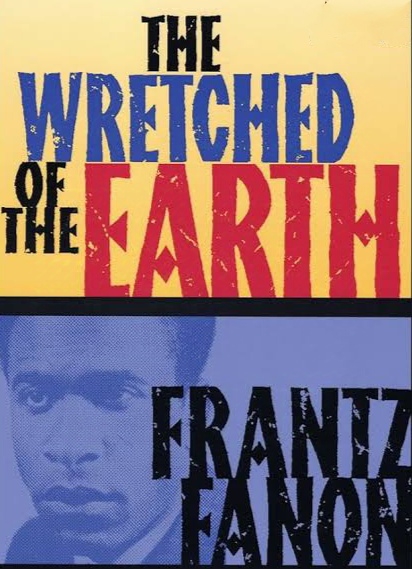'The Wretched of the Earth' by Frantz Fanon
Describe how decolonization fits into a larger global capitalist picture.
After decolonization, many newly independent countries remained financially dependent on wealthier, more industrialized nations—often the same countries that once ruled them. This phenomenon, called neocolonialism, means that powerful capitalist nations or former colonizers continue to influence these economies, even when the countries have gained political freedom. Through international economic systems, they maintain control. Big players like multinational corporations, the World Bank, and the IMF promote policies such as privatization, market liberalization, and structural reforms in these postcolonial states—choices that often benefit global capitalism rather than fostering local growth.
As postcolonial countries entered the global capitalist framework, they were often placed in secondary roles. Leading capitalist powers like the United States and Western European nations maintained control over these economies through trade deals, foreign investments, and aid programs. However, these arrangements came with conditions that prioritized the interests of international capitalists, leaving postcolonial nations at a disadvantage within the global system.
Global capitalism also impacted resource extraction, with multinational companies from industrialized countries setting up operations in postcolonial nations to access resources at low costs. This often meant that these countries’ natural resources were exploited without substantial economic benefit for them. As a result, wealthier, industrialized nations continued to benefit disproportionately, while development within postcolonial states remained limited, revealing the unequal dynamics in the global capitalist system.
The Cold War added another layer to this complexity. The global capitalist framework relied on low-wage labor, both in the industrialized North and in developing postcolonial states in the South, leading to labor exploitation in newly independent countries. During this period, the ideological battle between the capitalist West, led by the U.S., and the communist Soviet Union shaped the economic paths of many postcolonial nations. Some of these countries became part of capitalist or socialist alliances, while others attempted to challenge the global capitalist system by adopting socialist or nationalist economic models to gain more autonomy.
Describe what Manichaeism means in a colonial context.
In a colonial context, "Manichaeism" is all about this extreme, black-and-white thinking imposed by colonizers. They split the world into “good” and “bad” sides, where the colonizers were seen as the good, “civilized” people, and the colonized as “savage” or evil. This split fed into intense racism, grounded in the belief that Africans and other colonized groups were somehow naturally “bad” or inferior. Frantz Fanon digs into this idea in The Wretched of the Earth, pointing out how this kind of thinking lies at the heart of imperialist ideology.
Fanon saw colonial racism as a type of “Manichean madness,” where colonizers actually believed the colonized were dangerous or less than human, which, in their minds, justified using violence to control them. For Fanon, real decolonization meant breaking down this whole worldview that cast different people as practically separate “species” with opposing morals. In this Manichaean setup, colonizers even painted colonized people as irrational and violent, making it easier to justify harsh responses to any uprising or resistance.
In The Wretched of the Earth, Fanon explains how, during independence movements, some people who started out with the colonizers’ mindset of “Black versus White” or “Arab versus Infidel” started to see that things weren’t so simple. He wrote, “some blacks can be whiter than the whites, and that the prospect of a national flag or independence does not automatically result in certain segments of the population giving up their privileges and their interests.” Fanon’s point here is that even after independence, that old Manichaean thinking from colonialism could stick around, making true freedom and equality harder to achieve.
What is the role of violence in colonialism with reference to the wretched of Earth?
In The Wretched of the Earth, Frantz Fanon argues that violence is central to colonialism and that fighting back with violence is often the only way for the oppressed to break free. He believes that violence shapes every interaction between colonizers and the colonized, forming the foundation of colonial rule. For Fanon, violent resistance isn’t just a political tool; it’s also a way for the colonized to deal with the psychological pressure and reclaim their identity.
Fanon explains that colonialism relies heavily on violence—both physical and psychological. Colonizers maintain control through military force, coercion, and by instilling feelings of inferiority in the colonized. This not only leads to physical oppression but also causes deep mental pain and self-hatred among the oppressed. Fanon sees violence as a form of social control but also recognizes it can be a necessary response to reclaim dignity. For him, using violence can help the colonized assert their humanity and resist the oppression they face.
The relationship between colonizers and the colonized is inherently violent, creating a constant threat for the oppressed. Fanon argues that this violence dehumanizes the colonized and reinforces a cycle of oppression and resistance. He believes that the colonizers only understand the “language of violence,” which makes violent resistance seem justified in the eyes of the oppressed.
While Fanon supports violence as a means to liberation, he also acknowledges the risks involved. He warns that a history of violence can leave deep scars on post-colonial societies and lead to new forms of oppression if power isn’t shared fairly. This complicated legacy of violence shows that while it may be necessary to fight back against colonial rule, it can have lasting effects on both the colonized and the colonizers.



Comments
Post a Comment